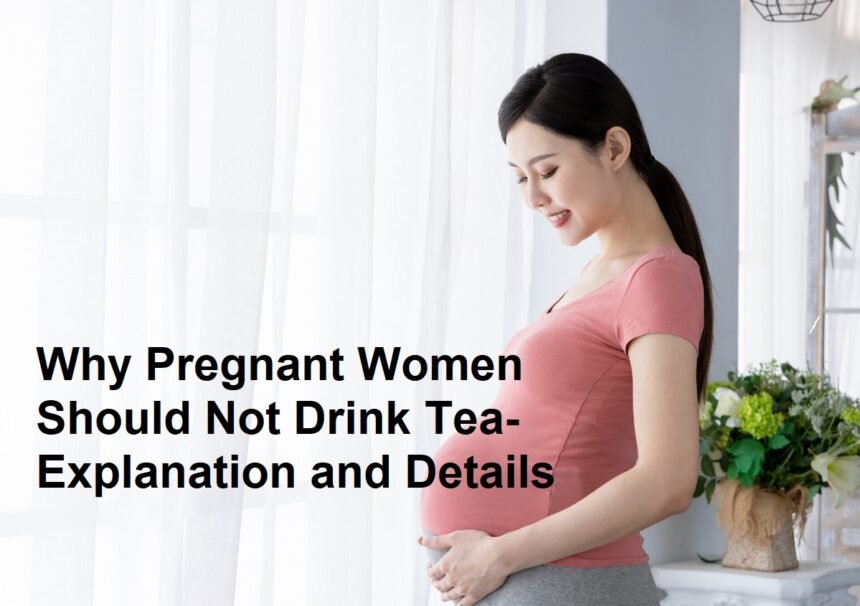Introduction
Pregnancy is a delicate period in a woman’s life, requiring careful attention to diet, lifestyle, and overall health. Expectant mothers are often advised to avoid certain foods and beverages to ensure the safety and wellbeing of their developing baby. One such beverage that is frequently discussed is tea. While tea is widely loved around the world for its soothing qualities and health benefits, pregnant women are generally advised to limit or avoid drinking tea during pregnancy. But why is that? Let’s explore the reasons behind this advice and understand the potential risks associated with drinking tea while pregnant.
1. High Caffeine Content
The most significant concern with tea consumption during pregnancy is its caffeine content. Tea, especially black and green tea, naturally contains caffeine, which is a stimulant that can cross the placental barrier and affect the developing fetus. The recommended safe limit for caffeine intake during pregnancy is usually around 200 mg per day, roughly equivalent to one to two cups of tea.
Exceeding this limit can lead to complications such as increased heart rate, high blood pressure, and sleep disturbances in the mother. More alarmingly, high caffeine intake has been associated with an increased risk of miscarriage, preterm birth, and low birth weight. Therefore, pregnant women are advised to monitor and limit their caffeine consumption, which often means reducing or avoiding tea altogether.
2. Risk of Miscarriage and Preterm Birth
Numerous studies suggest that excessive caffeine consumption during pregnancy can increase the risk of miscarriage and preterm labor. Although moderate tea intake may be safe for many women, the caffeine in tea still acts as a stimulant on the nervous system of both mother and baby, which can potentially lead to complications.
In particular, women who are sensitive to caffeine or who consume high amounts daily should be cautious. Healthcare providers usually recommend pregnant women to opt for caffeine-free herbal teas or decaffeinated options for safe hydration.
3. Iron Absorption Interference
Tea contains polyphenols such as tannins, which can interfere with the body’s ability to absorb iron from food. Iron is essential during pregnancy to support increased blood volume and oxygen supply to the fetus. Consuming tea, especially around meal times, can hinder iron absorption and may lead to iron deficiency anemia.
Anemia during pregnancy is associated with fatigue, increased risk of infections, and complications during childbirth. To avoid this, healthcare providers often advise pregnant women to limit tea consumption during meals and opt for iron-rich foods or supplements as recommended.
4. Potential for Containing Harmful Additives
Some commercially available teas or herbal teas may contain ingredients that are not suitable for pregnancy, such as certain herbs or additives that could induce uterine contractions or cause allergic reactions. For instance, teas containing certain herbs like licorice, ginseng, or hibiscus may have adverse effects on pregnancy.
It’s crucial for pregnant women to choose herbal teas carefully and consult with healthcare providers before consumption. Always select teas from reputable sources and avoid products with unclear ingredient lists.
5. Effects on Hydration
Although tea can contribute to your daily fluid intake, its caffeine content is a diuretic, meaning it can increase urine production and potentially lead to dehydration if consumed excessively. During pregnancy, maintaining proper hydration is vital for nutrient transport, waste elimination, and volume regulation.
Instead of heavily relying on tea, pregnant women should prioritize water, herbal infusions, and natural fruit juices to stay well-hydrated without risking dehydration or caffeine-related issues.
Final Thoughts
While moderate consumption of certain herbal, caffeine-free teas might be safe, most types of regular tea—black, green, or flavored—contain caffeine that pregnant women are recommended to limit or avoid. The potential risks include miscarriage, preterm labor, interference with iron absorption, and other health complications.
Expectant mothers should always consult with their healthcare provider for personalized advice. Focusing on a balanced diet, adequate hydration, and safe beverages can help ensure a healthy pregnancy for both mother and baby.
Remember, every pregnancy is unique, and what’s suitable for one person may not be for another. Prioritize safety, listen to your body, and make informed choices during this special time.












